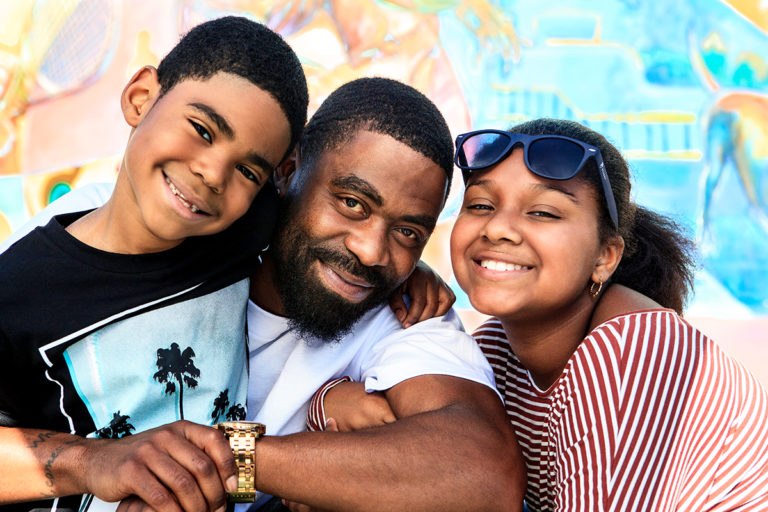2020
Annual Report
Dear Friends and Supporters,
Earlier this year, we were on the brink of a return to normalcy: the habits and routines which characterized our pre-COVID life. As we learned and experienced this past year, life can change quickly. But “normalcy” is and always has been elusive for many Americans who live in poverty; and especially now for those whose lives are forever altered because of the pandemic. We see the impacts close to home in Los Angeles County, where hundreds of thousands of renters and their family members risk losing their homes when tenant protections expire; millions have been unable to afford basic necessities, including food and housing, because they lost their jobs; and thousands have endured domestic violence at the hands of abusive partners with whom they quarantined.

Silvia R. Argueta
Executive Director

Michael Maddigan
President, LAFLA Board 2020-2022
SERVICES
Provides housing rights information and direct representation for individuals facing eviction. Eviction Defense Center (EDC) prevents housing-subsidy residents and Section 8 voucher holders from losing their housing and/or subsidies and preserves Rent Stabilized Ordinance (RSO) tenancies — as well as prevents RSO violations. Also, EDC helps clients living in uninhabitable conditions get repairs or reductions in rent. This workgroup also includes our new grant through Stay Housed L.A. bringing much-needed eviction defense resources to tenants in Los Angeles County Communities and may be the first steps towards a “Right to Counsel” for tenant eviction defense.
Provides linguistically accessible, culturally intelligent, trauma-informed help to API clients in their preferred language, with access to all LAFLA services.
ACCOMPLISHMENTS
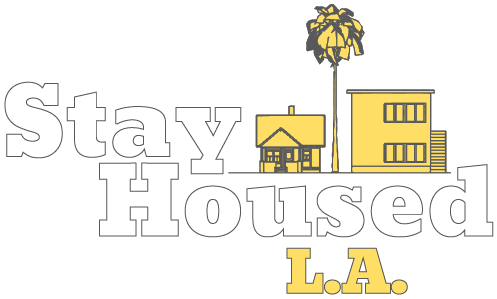
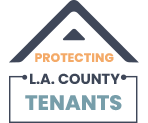
A new county-wide coalition, Stay Housed L.A., launched in fall 2020 to fight wrongful evictions and empower tenants to exercise their rights. LAFLA is the lead legal services provider, working in partnership with nine legal services partners and 16 community-based organizations. Stay Housed L.A. quickly became a lifeline for tenants whose landlords continue to harass and try to evict them, despite COVID- related tenant protections.
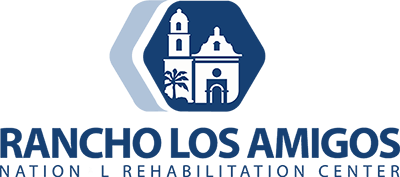
LAFLA’s medical-legal partnerships expanded with the opening of our clinic at the Rancho Los Amigos National Rehabilitation Center. The pandemic forced our services to go remote, yet our staff continued to help patients with legal problems impacting their health. LAFLA has a longstanding history with Rancho Los Amigos: More than 15 years ago, LAFLA (led by Executive Director Silvia Argueta, then a staff attorney; Managing Attorney Yolanda Arias; and Senior Attorney Elena Ackel of the Economic Stability Workgroup) and other advocacy groups successfully sued to keep the Rehabilitation Center open, after the Los Angeles County Board of Supervisors threatened its closure to save costs.


Our legal team continued to successfully fight for the rights of people experiencing homelessness in the City of Los Angeles. In April 2020, a federal judge ordered the City to stop enforcing parts of Los Angeles Municipal Code Section 56.11 that allowed City crews to seize and immediately destroy the belongings of unhoused residents, based on the belongings’ size. LAFLA, along with pro bono counsel on behalf of several unhoused plaintiffs and a partner organization, sued the City in 2019 — challenging the constitutionality of the code. Our lawsuit, Janet Garcia, et al., v. City of Los Angeles, et al., aims to prevent the City from being able to discard unhoused residents’ belongings, many of which they need to survive.
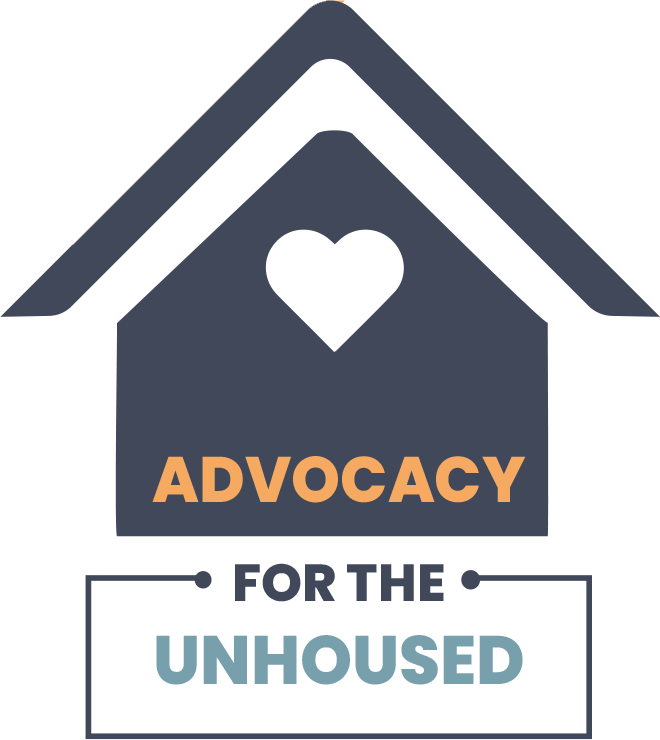
THROUGHOUT PANDEMIC
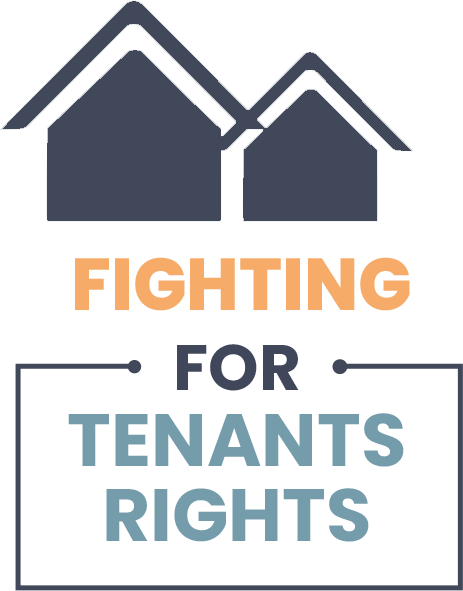
LAFLA successfully fought for policies that are keeping tenants safe, healthy, and in their homes throughout the pandemic. In Long Beach, the LAFLA team advocated for and won passage of a COVID eviction moratorium for non-payment of rent for residential and commercial tenants, among other protections. Long Beach was the first jurisdiction in Los Angeles County to adopt such a policy. We also advocated for a similar policy with the County, which led to the expansion of its moratorium (to include incorporated cities) and the broadening of its terms. Additionally, our team won the passage of a tenant anti-harassment ordinance in Long Beach, which makes it illegal for landlords to harass tenants — of which there has been an increase during the pandemic. Other cities, including Inglewood and Los Angeles, have since followed suit with their own tenant anti- harassment ordinances.
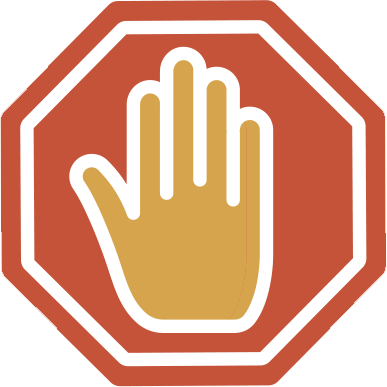
LICENSES DURING PANDEMIC
At the start of the pandemic, the Los Angeles County Superior Court postponed all traffic infraction matters. This troubled our re-entry team whose clients with suspended drivers’ licenses needed to access traffic court to lift those holds. During the pandemic, many of our clients relied on their cars to get to work (as essential workers who could not work from home) – and some relied on their cars for shelter while COVID spread. With input from our partners across the state, LAFLA proposed the Court implement temporary remote methods for lifting license suspensions, highlighting the disproportionate burden that low-income litigants face. The Court responded with a 90-day grace period on all traffic infraction tickets, as well as a streamlined phone system to get relief for driver’s license holds. However, there were issues with the Court’s response, including lengthy call wait times; it also publicized incorrect contact information. Our team and partners continued to press the Court for alternative ways to help impacted drivers. The Court created several new remote options for automatically accessing relief for driver’s license holds. It also permitted those with debt in collections to contact traffic court clerks directly, and republished accurate contact numbers.

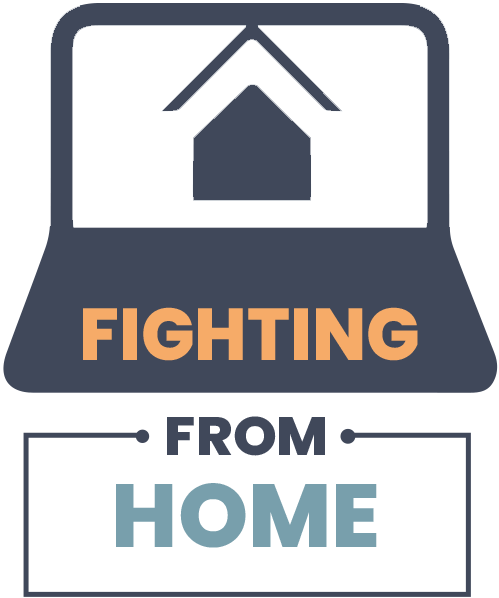
In 2020, LAFLA’s pro bono projects engaged more than 900 volunteers made up of attorneys, law students, undergraduate students, interpreters, community volunteers, and many others. These volunteers contributed more than 25,000 hours, valued at more than $10 million, to help expand LAFLA’s services to help meet the legal needs of the community. During the pandemic, pro bono volunteers went out of their way to represent tenants facing homelessness, domestic violence survivors trapped with their abusers, former foster youth seeking naturalization, previously incarcerated individuals hoping to clear their records, and many others. Also, LAFLA hosted more than 70 remote, volunteer-led legal clinics to serve the community while in-person clinics were suspended. LAFLA is so grateful to be able to call upon its many supportive pro bono partners during times of need.
2020 IMPACT
million people Living in Poverty across LA County
and short-term
economic benefits

Calls handled through LAFLA's Call Center
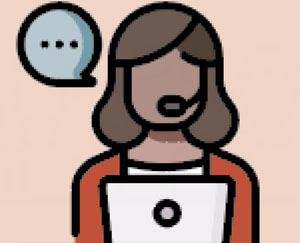
LA County residents received legal help through LAFLA.



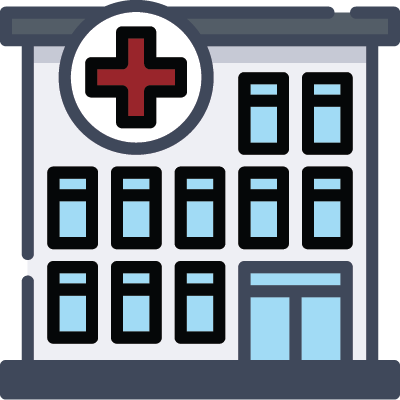
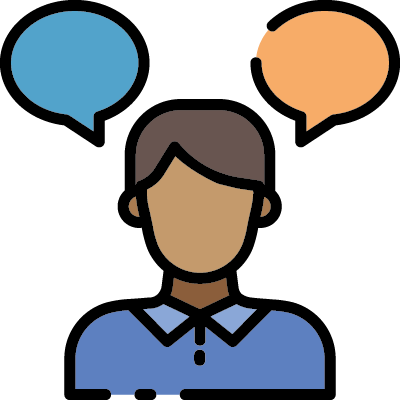
speak
19+
languages

Who We Help
By Race/Ethnicity
BY GENDER
By Legal Issue
Client Stories
Medical-Legal Partnership Reinstates Benefits for Stroke Survivor
LAFLA and Pro Bono Partner Keep Family Housed During Pandemic
API Community Outreach Project Helps Korean Immigrant and Children Escape Abusive Husband
Financials
Revenue & Support
Expenses
DONATED SERVICES
Thank You
AT&T Foundation
City Fabrick
Consulado General of Mexico
Equal Justice America, Inc.
Harvard University
LA Care Health Plan
Liberty Hill Foundation
Lucky Seven Foundation
R.J. and D.A. Munzer Foundation
Skadden Arps Slate Meagher & Flom Fellowship Foundation
Sullivan & Cromwell Foundation
The California Community Foundation
The California Endowment
The Children’s Clinic
The Durfee Foundation
The Elks of Los Angeles Foundation/Los Angeles Lee Linden Foundation
The Josephine S. Gumbiner Foundation
The Ralph M. Parsons Foundation
The Rose Hills Foundation
The Steptoe Foundation
University of California, Los Angeles
USC Fellowships
Venable Foundation, Inc.
W.M. Keck Foundation
ANGEL
Munger, Tolles & Olson
GUARDIAN ANGEL
Latham & Watkins
Morgan Lewis
GUARDIAN
Gibson Dunn
Kirkland & Ellis
O’Melveny
Quinn Emanuel
Sheppard Mullin
ADVOCATE
City National Bank
Jenner
Loeb & Loeb
Orrick
Cheryl & Haim Saban
TM Financial Forensics, LLC
Universal Music Group
PATRON
AT&T
Edison International
Debra Fischer & Sherwin Frey
Fox Corporation
Gelfand Rennert & Feldman
Hogan Lovells
Manatt, Phelps & Phillips, LLP
Moldex-Metric
Northrop Grumman
Nossaman
Pachulski Stang Ziehl & Jones LLP
Proskauer
Sullivan & Cromwell
Susman Godfrey
Rita Tuzon & Rick Stone
PARTNER
Akin Gump
Elizabeth & Jim Burgess
Covington
EPIC Brokers
Foley & Lardner LLP
Greenberg Glusker
IOA Insurance Services
JAMS
Jones Day
Mayer Brown
Morrison & Foerster
Pasich LLP
Paul Hastings
Reed Smith
Tom Rothman
David Sagal
Seyfarth Shaw
Signature Resolution
Spertus, Landes & Umhofer, LLP
Martin & Karen Tachiki
Jeffrey Taylor
TELACU
Venable
PRESIDENT
Michael Maddigan
VICE PRESIDENT
Amy Lerner Hill
SECRETARY
Amber S. Finch
TREASURER
R. Alexander Pilmer
COMMUNITY COMMITTEE CHAIR
C. Cleo Ray
COMMUNITY COMMITTEE VICE CHAIR
Patricia Vining
BOARD OF DIRECTORS
Karen J. Adelseck
Eric J. Bakewell
James M. Burgess
Wendy R. Cabil
Colin Cabral
Kyle Casazza
Sean A. Commons
Phyllis Coto
Carissa Coze
Sean Eskovitz
E. Martin Estrada
Joseph B. Farrell
Marc Feinstein
Debra L. Fischer
Felix Garcia
Silvia Hernandez
James E. Hornstein
Robert B. Hubbell
Lynette M. Jones
Zella Knight
Jason Linder
Clementina Lopez
John Maldonado
Louise Mbella
Virginia F. Milstead
Kevin J. Minnick
Phillip Mobley
Fanny Ortiz
Adam S. Paris
Joseph Paunovich
Craig O. Roberts
David Lewis Sagal
Kareen Sandoval
Kahn A. Scolnick
Marc M. Seltzer
Linus Shentu
Jeff A. Taylor
Ronald B. Turovsky
Brianne Wiese
